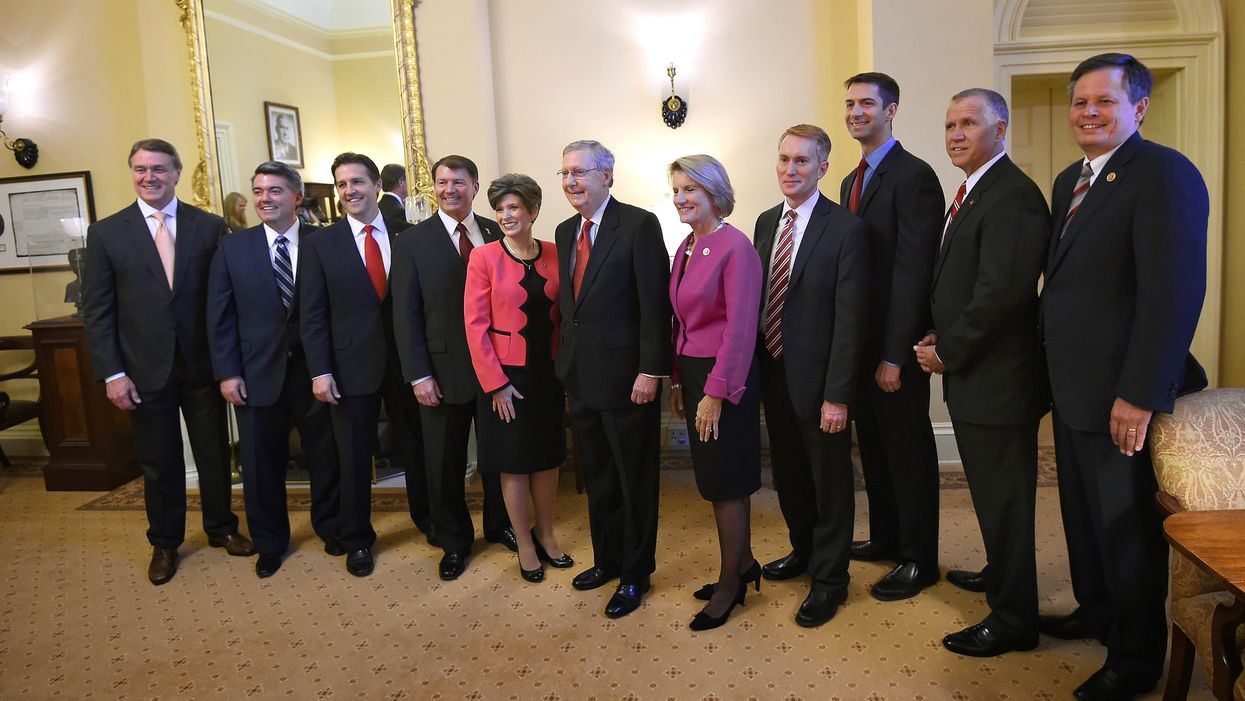Bipartisan majorities want more options for voting this year, and will be angry at members of Congress who oppose expanded absentee and early balloting in all six states where Republican senators are struggling hardest for re-election.
That was the top take-away of a survey released Thursday, the latest piece of an expanding campaign by good-government groups to pressure Congress to finance preparations for a vote-by-mail surge this fall because of the coronavirus.
House Democrats next week are expected to pass another pandemic response package, focused on aid to cities and states, with $4 billion in grants for making the election smoother and safer: more ballots, postage, counting equipment and even sanitizing supplies for polling places. The fate of the aid rests with the Senate, where resistance from majority Republicans has hardened in part because of President Trump's opposition.
That is why an upstart progressive group, Democracy for All 2021 Action, surveyed 805 voters two weeks ago in states that are home to eight Republican senators, including the six who at the moment appear most at risk of losing this fall: Martha McSally of Arizona, Cory Gardner of Colorado, Joni Ernst of Iowa, Susan Collins of Maine, Steve Daines of Montana and Thom Tillis of North Carolina.
The sample sizes were too small to make the results from each state totally reliable, but they were nonetheless consistent:
Voters strongly agreed that in light of the pandemic, more voting options should be available so that people can cast their ballots without risking their health. And they would have an unfavorable view of their senators for opposing legislation that would make it easy to avoid exposure to Covid-19 by voting by mail or early and in person.
This feeling was strongest among voters leaning toward a Democratic Senate challenger (84 percent) and the undecideds who will decide any race that stays close (53 percent). But two-fifths of those for now favoring a GOP incumbent said they too would be annoyed.
"Voters across party lines in these Senate battleground states are sending a clear message that they want their senators to support legislation to ensure safe voting options," said Geoff Garin, president of Hart Research, the Democratic firm that conducted the poll.
It was released by Democrat Amy Klobuchar of Minnesota, who has made easing access to the voting booth during the pandemic a signature cause since her presidential bid ended, and Michael Steele, a former national Republican Party chairman who now runs the U.S. Vote Foundation, which promotes easing access to the ballot box.
"Making democracy work for everyone is not a Democratic problem or a Republican problem — it's an American problem," he said.
Of the states polled, Colorado is the only one with an all vote-by-mail system in place. Arizona, Maine and North Carolina do not require an excuse to vote absentee — suggesting a surge in mail ballots is highly likely this fall. Neither does Montana, which has decided to send mail ballots to all registered voters.
A similar surge is expected in Iowa; every registered voter will receive an application to vote absentee in the June 2 primary. (What happens this fall is not yet decided.)
Because the process will be new to many Iowans, the Iowa Future Caucus, a bipartisan coalition of young members of the General Assembly, launched a campaign this week to promote it — another effort that, intentionally or not, will put pressure on Ernst to support such efforts as she seeks a second term against Democratic real estate executive Theresa Greenfield, who has surged in recent polls.
In the two videos, two Democrats and two Republicans, take turns explaining how the mail-in process works and encouraging voters to cast their ballots this way.
Because of the threats posed by the public health crisis, the legislators saw the issue as ripe for bipartisan collaboration, said Lani Bohm of the Millennial Action Project, a bipartisan group that promotes the careers of younger centrist politicians and fostered the campaign.
The young Iowans "feel confident in the legitimacy of this new election process," she said, and are "unified support for vote-by-mail during Covid-19, regardless of party."




















